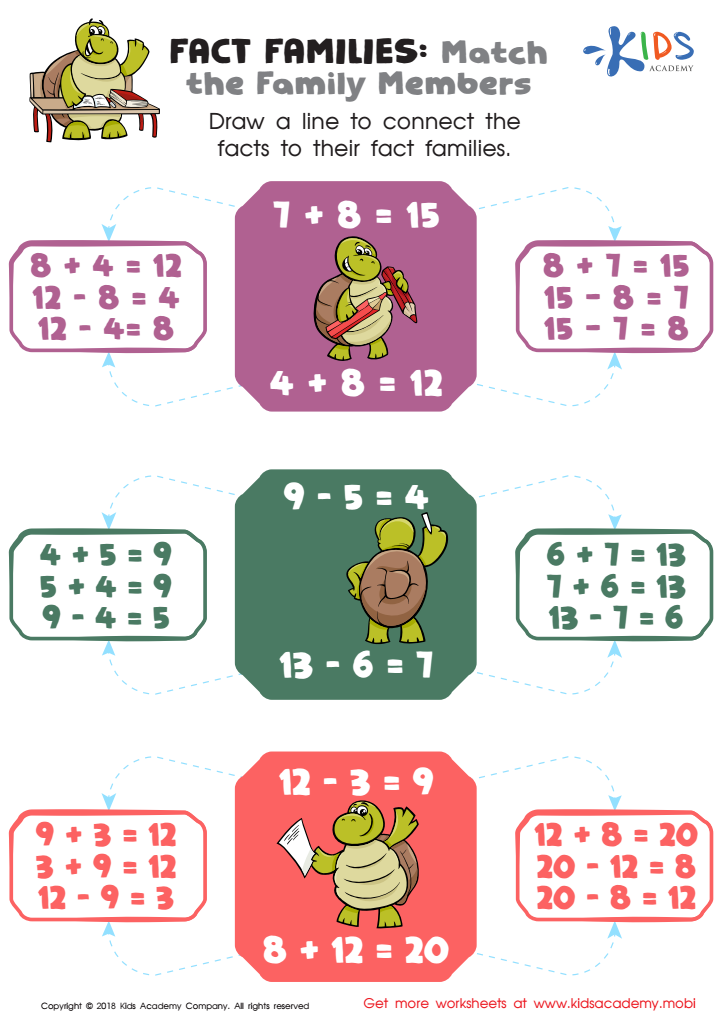Improve problem-solving skills Addition Worksheets for Ages 3-9
5 filtered results
-
From - To
Enhance your child’s problem-solving abilities with our specially designed Addition Worksheets for Ages 3-9. Our engaging worksheets combine fun activities with effective learning strategies to help young learners master addition and develop critical thinking skills. Tailored to different age groups, these worksheets offer a progressive approach to building confidence and proficiency in math. Each worksheet encourages logical reasoning and analytical thinking, making math both enjoyable and educational. Perfect for classroom use or at-home practice, our addition worksheets are a valuable resource for parents and teachers looking to prepare kids for future academic success. Start your child’s math journey today!


Fact Families: Match Family Members Worksheet
Developing strong problem-solving skills in children aged 3-9 is crucial, and parents and teachers play a vital role in nurturing this ability. Introducing problem-solving through basic addition facilitates cognitive growth, helping children to think critically and approach challenges logically.
First, early exposure to addition fosters numerical literacy, a fundamental skill necessary for more advanced math concepts crucial in later academic stages. Simple problems like adding two numbers together enhance memory, attention, and reasoning abilities, laying a strong foundation for tackling more complex problems in the future.
Second, practicing addition helps build confidence. Successfully solving problems gives children a sense of accomplishment, encouraging a positive attitude towards learning and persistence in overcoming difficulties. Confidence in their problem-solving skills extends beyond math, impacting all academic areas.
Third, learning to add requires understanding and recognizing patterns, which are essential cognitive skills. This pattern recognition not only helps in math but also in everyday life situations where logical sequences and structured thinking are required.
Moreover, collaboration with parents and teachers on these skills fosters strong support systems. Guided help in solving problems, combined with encouragement, builds a proactive learning environment.
Investing in the improvement of problem-solving skills through addition for young children is an investment in their overall cognitive development, confidence, and ability to tackle a wide array of future academic and real-life challenges.


 Assign to My Students
Assign to My Students


















